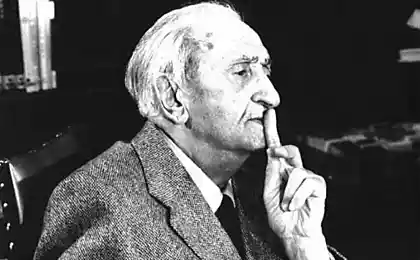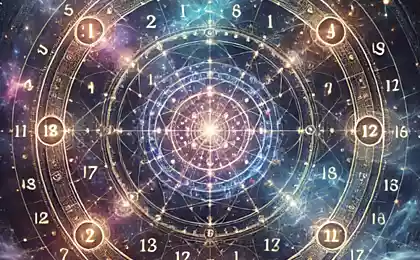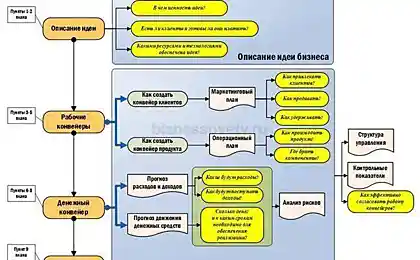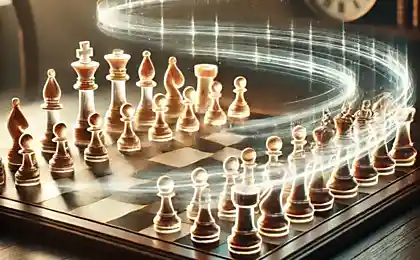312
Professor Sondi's Fate Analysis: How We Make Choices

The psychology of choice is one of the deepest and most fascinating topics people face in their quest to understand why we make decisions, what drives us in critical choices. Every day we are faced with decisions that seem insignificant to us, but in fact each of them can fundamentally change the course of our lives. One of the most unusual and effective methods for analyzing life choices is fate analysis, developed by Hungarian psychologist Professor Sondi. In this article, we will learn more about this method and how it can help us understand not only ourselves, but also the hidden causes of our actions.
Ecology of life: What is Professor Sondi's fate analysis?
Fate analysis (or fate analysis) is a branch of deep psychology proposed by Professor Ernst Sondi, who sought to understand how and why we make choices and how those choices affect our lives. In essence, fate analysis is a psychological tool that helps to understand the unconscious motives that drive a person when making decisions, as well as how these decisions affect our life path.
Sondi’s method states that each choice is a reflection of inner psychological conflicts and needs. It can be a choice of partner, profession, place of residence or even attitude to life in general. All these decisions, according to Sondi, are based on deep unconscious processes related to our upbringing, traumas, fears and aspirations.
The basics of the method: how do we make decisions?
Fate analysis is based on the principles of deep psychology and psychoanalysis, emphasizing that each choice we make is not random, but reflects deeper, often hidden aspects of our mental state. In this process, it is important to understand several key aspects:
1. Unconscious motivations
We all make decisions based not only on conscious thoughts, but also on unconscious attitudes. It can be old traumas experienced in childhood, or unjustified fears. These unconscious motives are often the primary reason for making choices that may seem logical and right to us, but in fact do not always correspond to our present state and needs.
2. Impact of external factors
Our decisions also depend on external factors: society, culture, the environment in which we grow and develop. These factors can greatly influence the decisions we make in life. For example, pressure from parents or societal expectations can lead us to make choices that are not really our own, but a reflection of others’ standards.
3. Overcoming internal conflicts
Every decision often involves overcoming internal conflict. For example, we may be torn between the desire to follow our passion and the need to follow social norms. In such cases, it is important to understand what choice will be most harmonious for our psyche and personal development.
How fate analysis works: tests and diagnosis
The main purpose of fate analysis is to identify hidden motivations that affect the choice, as well as to help a person understand why he makes certain decisions. Several methods are used for this, including tests based on associations and perception of images. One popular method is to use cards with images or abstract symbols that a person must associate with a particular situation. These associations allow a deeper understanding of personal preferences and hidden desires.
An example of such a test is a selection method in which a person is asked to choose between several images or symbols that symbolize different aspects of life, such as love, work, family, career ambitions, etc. Answers to such questions help to identify which areas of life are most important to a person at the moment, and which hidden fears or desires can influence his choice.
Application of fate analysis in life: how does it help?
Professor Sondi’s method can be useful not only in psychotherapeutic practice, but also in everyday life. Understanding their underlying motivations helps people make more informed decisions, avoid repeating mistakes, and follow their true desires. For example, by analysing your choices, you may realize that you are attracted not to a partner who seems “right” by social standards, but to someone who fits your inner needs and values. This discovery helps to break free from old stereotypes and find more harmonious ways in life.
Destiny analysis also helps in the professional sphere. Awareness of what drives us when choosing a career or professional path helps not only to make more informed decisions, but also to avoid professional burnout or failure, which often occurs when a person goes wrong.
How does the Sondi method help you understand yourself?
One of the main advantages of fate analysis is that it allows you to better understand not only your choices, but also yourself. This method helps to understand your desires, fears and motives, which contributes to personal growth. It allows you to find a balance between internal needs and external requirements, as well as learn to make more informed and informed decisions. As a result, fate analysis becomes not just a tool for understanding your choices, but also a way to create harmony in life.
Conclusion
Professor Sondi’s fate analysis is a powerful tool that helps us understand the hidden aspects of our behavior and decisions. This method allows us to look at our lives from a new perspective, reveal ulterior motives, and perhaps change our path. By applying fate analysis, we learn to better understand ourselves, make more informed decisions, and ultimately build a happier and more harmonious life.
Why are some spots on the body so painful?
Poisonous friendship: when a relationship with a friend is ruined























